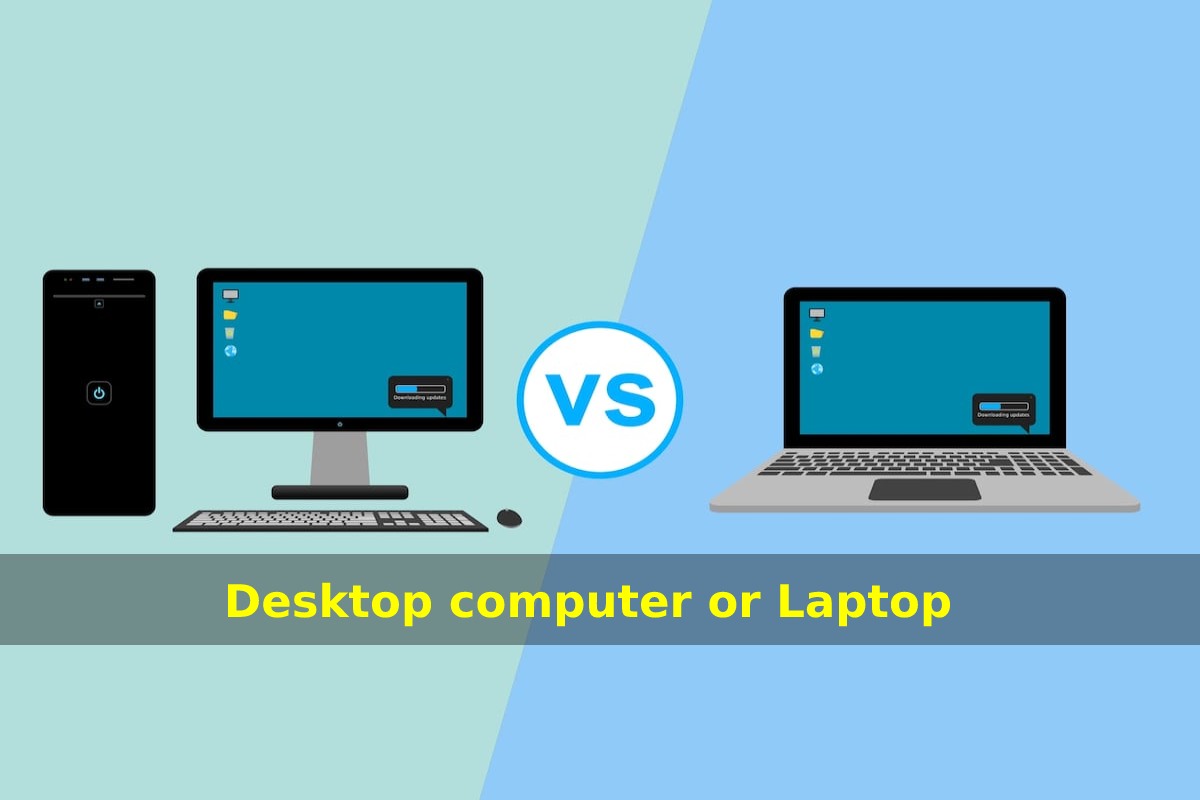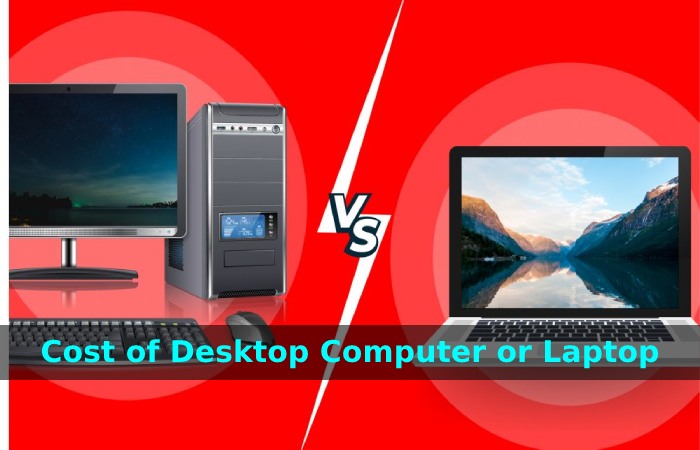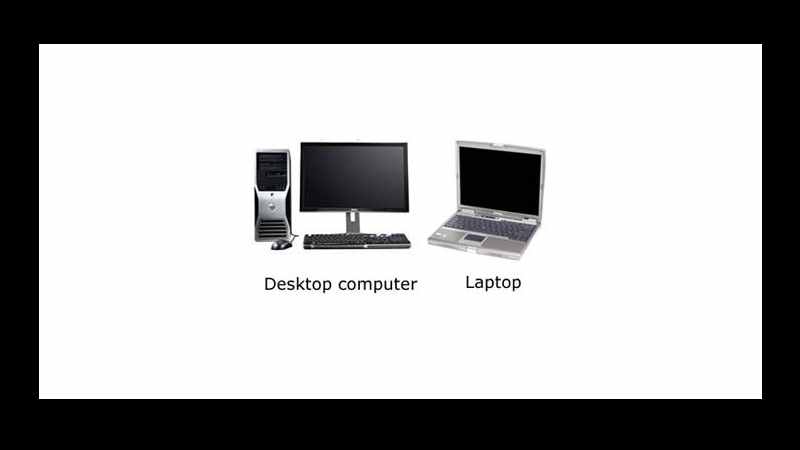
28 Mar Desktop computer or Laptop
Table of Contents
Introduction
When looking to buy a new computer, you may wonder whether to go for a laptop or a desktop. A desktop computer offers the most performance at the lowest price, but a laptop performs similarly in a much smaller form factor. If you value portability, a computer is the only logical choice.
When you buy a desktop computer or Laptop, you need to consider several criteria and determine what best suits your needs. Here is a chart comparing the two types of equipment, providing the advantages and disadvantages of each to assist you in making a more informed purchase decision.
Cost of Desktop Computer or Laptop

Desktop: there are a wide variety of component options available for desktops, which allows for a wide range of prices, but the opening point is relatively inexpensive. Desktops can cost up to $600 and remain a robust system.
Laptop: Laptops can have a relatively wide choice of components, but they are more limited than desktops. Getting a more powerful notebook with higher speed, better graphics, more storage space, etc., can be considerably higher, reaching $1,000 or more, depending on the brand.
In short: the office wins this category. A desktop is always cheaper than a laptop.
Desktop Computer or Laptop
Desktop: desktops are large and have a separate monitor. Although it is possible to move an office from one location to another, it is bulky and not an option for portability. In addition, they were designed to be used in one place and did not move much.
Laptop: Laptops are very portable due to their compact size. They have been designed to be transported from one place to another and carried in a backpack or notebook-carrying case. They are ideal for use in motion.
Also Read: Spy On Facebook Messenger Conversations, is It Possible?
Computer Processor and Laptop Processor
Desktops are more significant, but it also means that desktop processors can be more potent than laptop processors. The new and advanced processors on the market are generally available first on desktops.
Notebook: Notebook processors have almost reached desktop processors but remain limited compared to desktop processors. Gaming laptops can have the same performance but at a much higher price.
In short, desktop PCs are gaining this category. As desktops don’t need to worry about battery life, they will always have better processors.

The Internal Storage of Desktop Computers and Laptops
Desktop – multiple internal storage units can install on desktops.
Laptop: Laptops usually have room for single internal use. If more internal storage is compulsory, the drive load is wholly changed, or its storage must use.
In short, desktop PCs are gaining this category. Although both computers can connect external drives or use cloud storage, desktops can have multiple internal hard drives and other drives.
Mounting and Configuration
desktop: setting up a desktop requires extra work to connect everything and start using it. You also need more space to configure. So even though it’s not hard to connect everything, it’s still heavier than a laptop.
Laptop – Laptops remain easy to use and require little time to operate. Pull it out of the box, plug it in, and press the power button. In minutes, your Laptop is ready to use.
In short, laptops win this category. A computer can be up and running in minutes.
Keyboard
Desktop: desktops can use standard-sized keyboards, including a numeric keypad. There’s no limit.
Laptop: Smaller laptops with 14” and 15” screens have smaller keyboards and do not have a numeric keypad on the right side. Larger laptops with 17-inch screens have more prominent keyboards and may include a numeric keypad, but notebooks are larger and heavier.
In short, desktop PCs are gaining this category. Though, a desktop keyboard can connect to a laptop, which, if done, could type it easier.
Also Read: Sim Card For Ipad Is Necessary?


No Comments